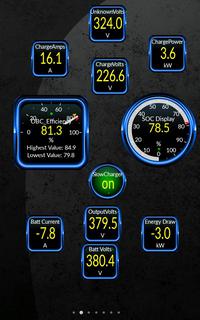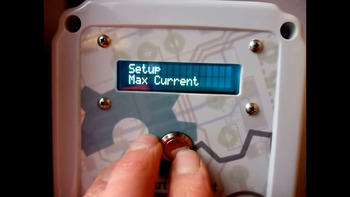Finally picking up our new Soul in two weeks but haven't gotten around to setting up a charging station yet and was just going to wing it with level 1 charging for now and see how that goes as it should keep up with our daily consumption. However after watching one of Byorn Nyland's newer videos on the Metron charging cables I thought that would be an inexpensive/less involved option.
https://youtu.be/hSqP8wa2nT4
Of course they're only available in Europe though but on some googling I see there are similar ones available in Canada https://www.amazon.ca/Charger-110V-240V-Charging-Holder-Adapter/dp/B07CYQV2VL/ref=pd_sbs_263_t_0/136-2307825-9240220?_encoding=UTF8&pd_rd_i=B07CYQV2VL&pd_rd_r=f13e114d-d78d-4935-bc03-dde5c23731bc&pd_rd_w=k4BgI&pd_rd_wg=u9fGp&pf_rd_p=9926bb69-42b9-46e4-b788-f665992e326d&pf_rd_r=CFCCX3XWGAYJ8VS9ZF9Q&psc=1&refRID=CFCCX3XWGAYJ8VS9ZF9Q
HOWEVER, It's only 16A which is great as It's much easier and cheaper for me to install a 20A circuit and outlet instead of 40A and I think that would be plenty for our daily needs but reading the Soul's charging specs they only list one charging rate for level 2 (30A)
Sooo, basically my question is will the Soul play nicely if I give it a 240V 16A charge?
https://youtu.be/hSqP8wa2nT4
Of course they're only available in Europe though but on some googling I see there are similar ones available in Canada https://www.amazon.ca/Charger-110V-240V-Charging-Holder-Adapter/dp/B07CYQV2VL/ref=pd_sbs_263_t_0/136-2307825-9240220?_encoding=UTF8&pd_rd_i=B07CYQV2VL&pd_rd_r=f13e114d-d78d-4935-bc03-dde5c23731bc&pd_rd_w=k4BgI&pd_rd_wg=u9fGp&pf_rd_p=9926bb69-42b9-46e4-b788-f665992e326d&pf_rd_r=CFCCX3XWGAYJ8VS9ZF9Q&psc=1&refRID=CFCCX3XWGAYJ8VS9ZF9Q
HOWEVER, It's only 16A which is great as It's much easier and cheaper for me to install a 20A circuit and outlet instead of 40A and I think that would be plenty for our daily needs but reading the Soul's charging specs they only list one charging rate for level 2 (30A)
Sooo, basically my question is will the Soul play nicely if I give it a 240V 16A charge?


































